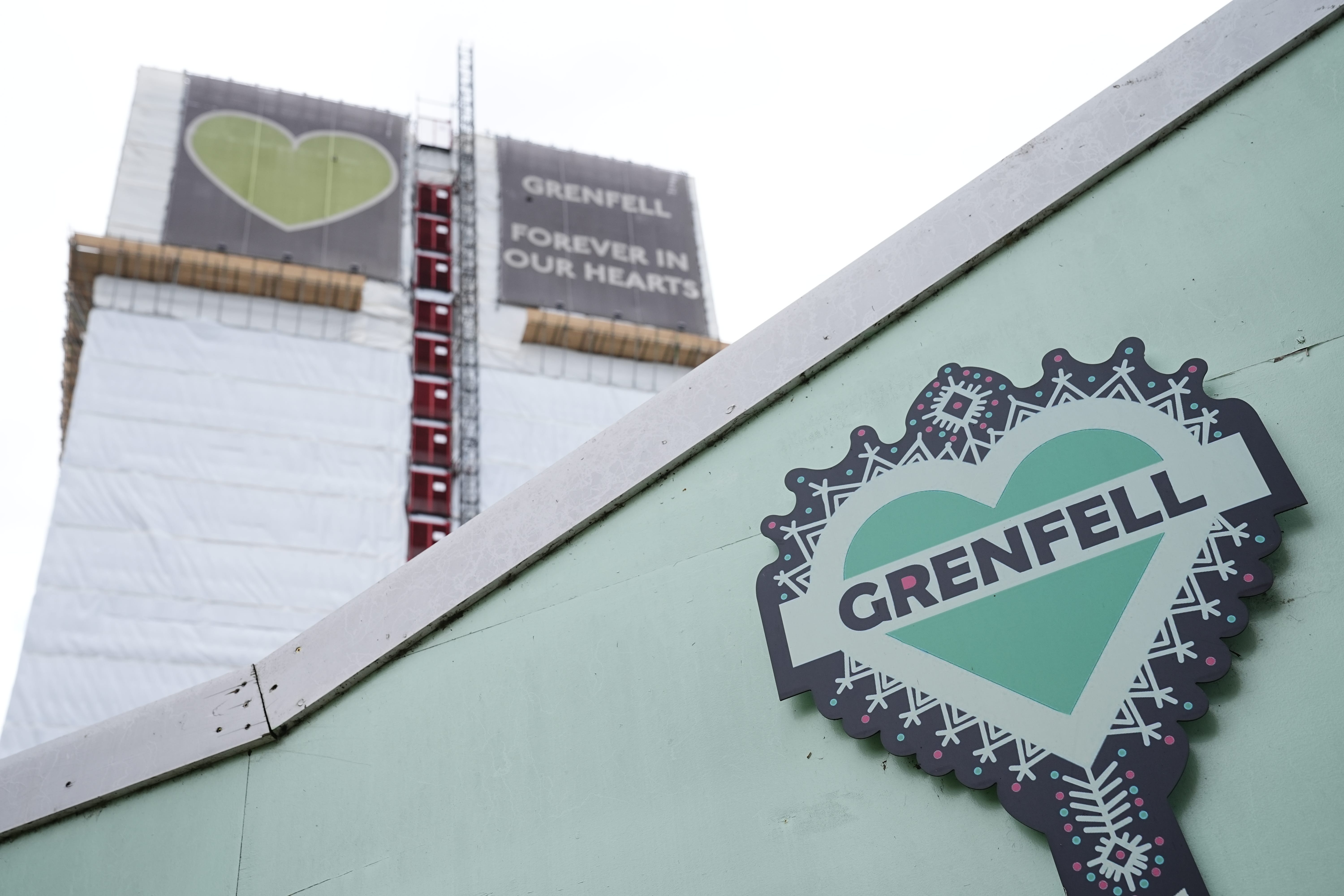Bereaved and survivors hope ‘landmark’ Grenfell final report exposes wrongdoing
The final hearing of the second phase of the inquiry took place in November 2022 and the report will be published this week.

Your support helps us to tell the story
From reproductive rights to climate change to Big Tech, The Independent is on the ground when the story is developing. Whether it's investigating the financials of Elon Musk's pro-Trump PAC or producing our latest documentary, 'The A Word', which shines a light on the American women fighting for reproductive rights, we know how important it is to parse out the facts from the messaging.
At such a critical moment in US history, we need reporters on the ground. Your donation allows us to keep sending journalists to speak to both sides of the story.
The Independent is trusted by Americans across the entire political spectrum. And unlike many other quality news outlets, we choose not to lock Americans out of our reporting and analysis with paywalls. We believe quality journalism should be available to everyone, paid for by those who can afford it.
Your support makes all the difference.A bereaved relative and a survivor of the Grenfell Tower fire have told of their mixed feelings of apprehension and hope just days ahead of the final report into the deadly blaze seven years ago.
The long-running inquiry’s second report, which will be published on Wednesday, will present findings on how the west London tower block came to be in a condition which allowed the flames to spread so quickly, claiming the lives of 72 people.
The report into phase one, published in October 2019, concluded the tower’s cladding did not comply with building regulations and was the “principal” reason for the rapid and “profoundly shocking” spread of the blaze.
It is expected inquiry chairman Sir Martin Moore-Bick and his two panel members will now go on to lay out their detailed findings regarding the actions of corporate firms in the construction industry, the local authority, London Fire Brigade and the government.
The final hearing of the second phase of the inquiry took place in November 2022 and families have previously spoken of their long wait and continued fight for justice.
Sandra Ruiz, whose 12-year-old niece Jessica Urbano Ramirez died in the fire, said this final publication must be a “landmark report”, which prompts “cultural, institutional and legislative change”.
Former tower resident and Grenfell United member Edward Daffarn said he hopes it will “highlight the institutionalised indifference that saw private companies put profit before people”.
Speaking to the PA news agency, both told of their feelings ahead of the major report.
Ms Ruiz said there is “a bit of trepidation” that the report “may not cover everything that we hope for”, but added there is “a lot of hopefulness” given how “hard-hitting” the first report was.
Mr Daffarn said he was feeling “quite apprehensive”, adding: “We’ve waited a long time.”
As someone who had long campaigned about safety issues at the tower, and famously predicted the fire in a blog post just months before it happened, Mr Daffarn said he is hopeful for vindication for those he said had been painted as “rebel residents” who were “difficult” in their dealings with the council and the tenant management organisation.
“I hope that that will be dealt with, and that Sir Martin Moore-Bick will reach a conclusion, and that we will be vindicated,” he said.
Unfortunately this country’s governance is broken at the moment. This report needs to change that
More widely, he said he wants the report to see the actions of the government and private companies “fully exposed”.
He added: “(I hope) the buck-passing that took place during the public inquiry, where none of the corporate core participants took any responsibility for their actions, is going to come to an end.
“The buck will stop, and we will finally be in a position where we have the truth and we will be able to call out some of these companies and the government for the way that they behaved.”
Ms Ruiz said the report needs to bring about “a tide change” in how organisations, government and local authorities are governed and managed “because we’ve seen all too often” how people have “completely sidestepped their areas of responsibility”.
She added: “We can’t allow that to happen. Unfortunately this country’s governance is broken at the moment. This report needs to change that.”
Ms Ruiz said ethical standards have slipped over the years, adding: “Those ethics have gone by the wayside, in favour of profits and this is what we see as a result.”
Mr Daffarn said the report must “create a legacy” whereby it is “at the forefront” of the minds of anyone working in government, local authorities, manufacturing and construction.
“Whenever they’re making a decision, they need to think about the consequences, the consequences of the Grenfell Tower fire, that saw the deaths of 72 people,” he said.
Bereaved and survivors have previously called for a national oversight mechanism, an independent public body, to be put in place – responsible for collating, analysing and following up on recommendations from public inquiries.
In his report earlier this year, Infected Blood Inquiry chairman Sir Brian Langstaff indicated he would keep his inquiry open to monitor the Government’s response to his recommendations.
Referring to that point, Mr Daffarn said: “I think past history shows us that we cannot have confidence that recommendations are going to be followed through by government.
“This current Government have made a lot of promises around the fact that they will implement these recommendations, but I think it would be a good thing if the (Grenfell) inquiry was kept open for the function of scrutiny.”
Since it was set up, the Grenfell Tower Inquiry held more than 300 public hearings, received over 1,600 witness statements and disclosed more than 320,000 documents to core participants.